Andy Lau and Ning Hao collaborated after "Crazy Stone", this new work is too daring to shoot
1905 movie network feature Andy LauYeah.Ning HaoThe grace of knowledge and encounter goes without saying,"Crazy Stone"After 17 years, the two finally collaborated on a new filmMr. Red Carpet.…The film will debut in 2023Toronto Film Festival, Since the official announcement, it can be said to have attracted much attention. This is also the follow-up to director Ning Hao"Crazy Alien"Will the latest masterpiece after (2019) return to the "crazy" series, or will it bring a new style?
Xiao Dianjun’s little friend Defoucsing in front of Toronto brought a first-hand movie report~
The "Gala" section is one of the most talked-about sections of the Toronto International Film Festival, and the films that can be shortlisted are either starring big-name stars or directed by renowned directors.Most of the shortlisted films chose to premiere in the first half of the festival, while the only Chinese-language film shortlisted for the section this year, "Mr. Red Carpet," chose to premiere on the penultimate day of the festival, taking into account the schedule of the lead actor Andy Lau.
On the afternoon of September 15, hours before the film premiered, Chinese fans in Toronto were already eagerly anticipating that Andy Lau would appear on the red carpet and interact with fans.In addition to the enthusiastic reception from the media and fans, the Toronto Film Festival awarded this year’s "Special Contribution Award" to Andy Lau as a courtesy. The legendary actor, who will celebrate his 62nd birthday this month, became the first Chinese filmmaker to win the award.
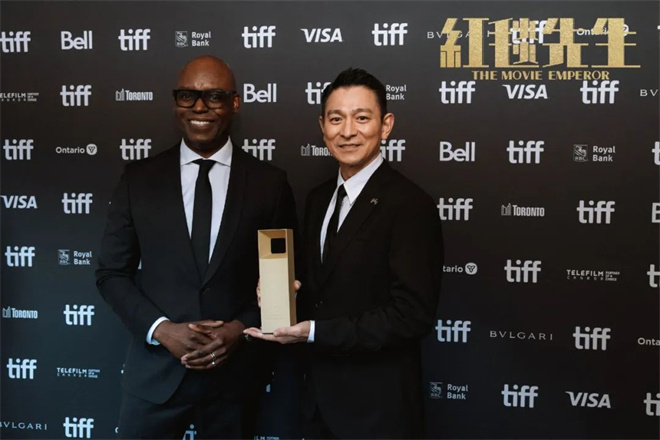
The three public screenings of "Mr. Red Carpet" were almost full, becoming a grand event for Chinese film fans from all over Toronto.Its popularity stems not only from Andy Lau’s influence, but also from the fans’ trust and expectation of the director Ning Hao. With the "Crazy" trilogy, Ning Hao established his mastery of comedy and dark humor.
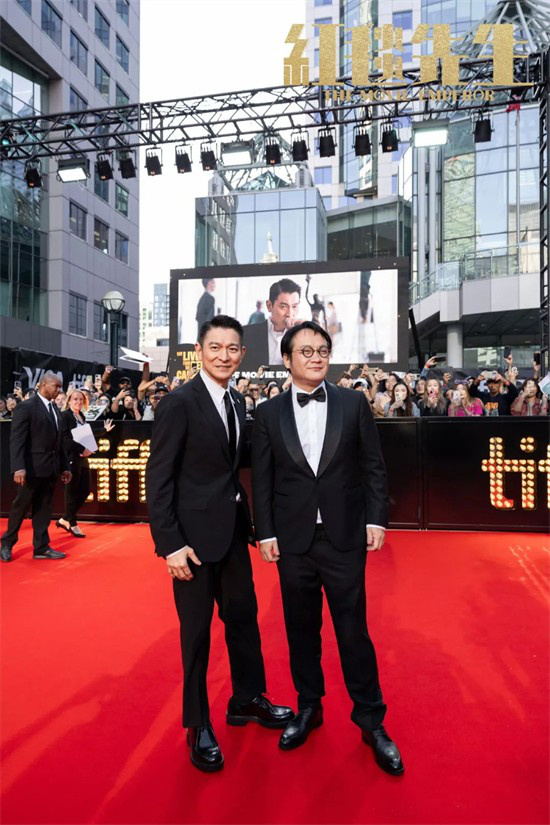
In previous works, Ning Hao often cut from the perspective of "small people", such as Bao Shihong (Guo Tao), the defense chief in "Crazy Stone" and Pan Xiao (Xu Zheng), the lawyer in "No Man’s Land" and Jiaojiao (Yu Nan), a prostitute, etc. By involving these characters in dramatic events, Ning Hao is good at criticizing specific social phenomena by creating a sense of absurdity.
The role setting of "Mr. Red Carpet" and Andy Lau’s participation seemed destined from the very beginning, which would be a unique work in Ning Hao’s directorial career.
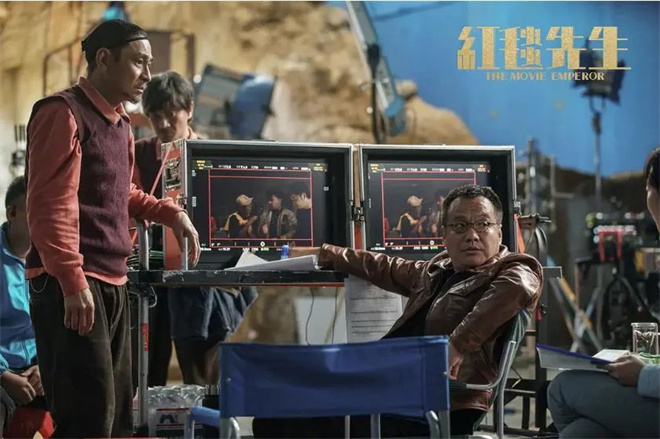
In the Q & A session after the premiere, Ning Hao recalled how he expressed his intention to cooperate with Andy Lau at the Golden Rooster Awards ceremony. The two hit it off immediately, and Andy Lau also said that the screenplay of the film was based on his and Ning Hao’s running-in negotiations: "We found a common ground and hoped to be close to a’me ‘film."
The organizing committee of the Toronto Film Festival praised Andy Lau’s performance in "Mr. Red Carpet" on the official website: "The film is a merciless satire of all living beings in this era, but still exudes the true emotions of human beings. Andy Lau perfectly portrays the shining image of Liu Weichi as a millionaire movie star in front of the stage, and also brings his sensitive and lonely artist soul to the fullest… Smart, gorgeous and entertaining," Mr. Red Carpet "is an interesting movie to watch – especially at the festival."
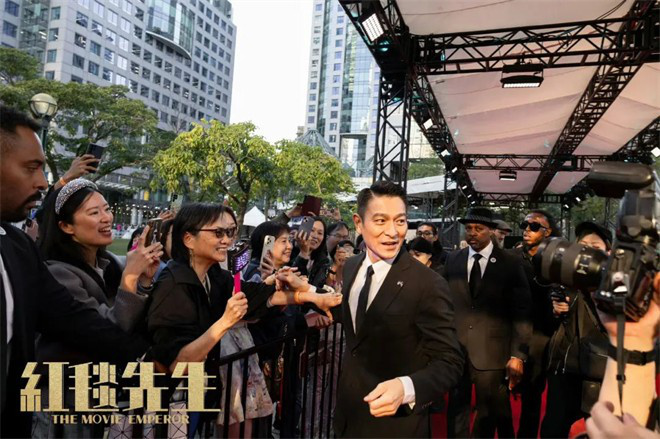
Admittedly, "Mr. Red Carpet" is a film made for film festivals, which is explained in a witty way at the beginning.Liu Weichi (Andy Lau) came back from the awards ceremony in defeat and ran with him for ten thousand years. Liu Weichi, who had never won the award, felt embarrassed or even ashamed. He decided to cooperate with the directorLin Hao(Ning Hao) Shooting a film that can be favored by the festival judges and revive his career, which seems to be "out of date".
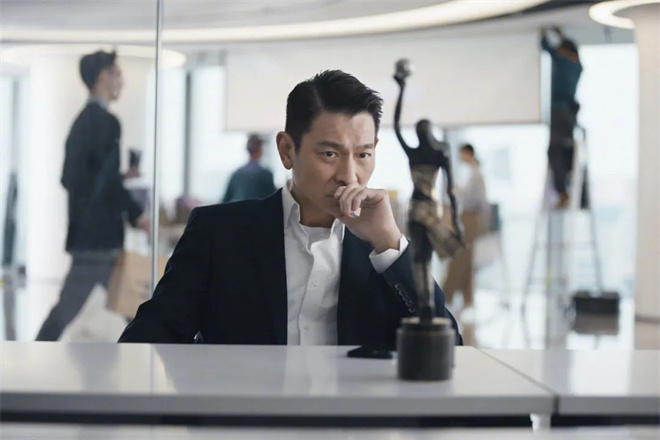
However, before the film had even started filming, Lin Hao and Liu Weichi had a disagreement. This "movie within a movie" is about rural themes. Liu Weichi wanted to make a film about fatherly love, but Lin Hao only thought about how to cater to the preferences of foreign film festival judges.
When the president of the Toronto Film Festival took to the stage to announce that he would host the after-screening dialogue, the audience could not help but sweat for Ning Hao. But "offending" and "offending" the filmmakers were obviously not among Ning Hao’s concerns in creating "Mr. Red Carpet."

"Mr. Red Carpet" incorporates reflection and critique of social reality into a humorous dialogue. When the film crew goes into the countryside to inspect the "wind" and hope to learn about the real rural life, the "tour guide" sent by the village committee takes the film crew to the "demonstration" households displayed outside the village.
Through the treatment of this scene and other details of the film, the film lightly criticizes the formalism of the grassroots, and the lines that are close to the reality of China allow the Chinese audience in the venue to better understand Ning Hao’s sense of humor.
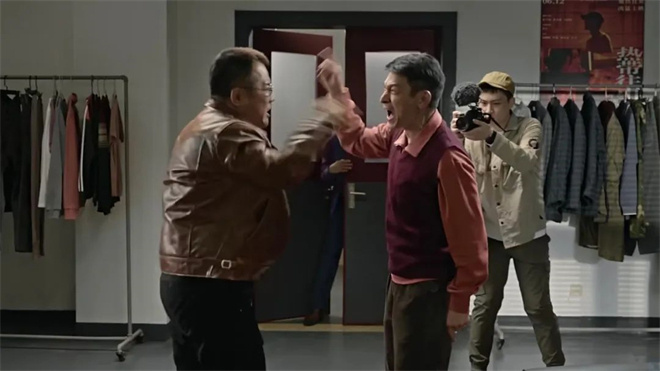
In addition, just as Ning Hao’s battle for jade in "Crazy Stone" reflects the existential anxiety of subjects representing different strata of society, "Mr. Red Carpet" also cleverly uses objects and the events they trigger to achieve the main theme of the creation. The slightly loose second half of the film realizes the closure of the narrative structure with the fate of a pig.
When the pig was taken from the countryside to the city, the crew booked a separate room for it and arranged for a special person to raise it, but due to negligence in cleaning, the pig slipped out of the room and created a literal farce, which brought the film to a climax.
In the film, the fate of the "pig" corresponds to Liu Weichi’s "scandal "-ridden star path, which gets worse as he explains it, and at the same time, the pig’s incongruity in the urban space and even a certain self-explanatory sense of absurdity make the film’s irony natural.
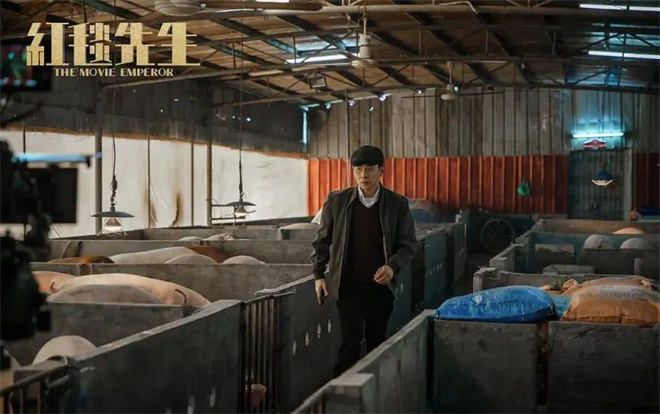
In terms of audio-visual language, the composition of "Mr. Red Carpet" is impressive. The film uses a lot of symmetrical composition, especially indoor scenes such as Liu Weichi’s mansion and the hotel where the crew stayed. The minimalist and modernist style of setting reinforces the gap between the filmmaker’s living space and the countryside.
This led to Ning Hao’s self-deprecation and reflection on the film industry: Liu Weichi, who claimed to be going to the countryside to experience life firsthand, eventually fled because he could not adapt to the rural lifestyle and interpersonal methods; Liu Weichi and Lin Hao swallowed their anger in order to cater to the needs of investors.
From Liu Weichi’s participation in "top gifter" golf tournaments and parties of intoxicated gold fans, to Lin Hao’s willingness to sacrifice the quality of the film itself in order to curry favor with investors’ various relatives and friends in supporting roles, to accidental on-set brawls – Vanity Fair’s rules are criticized like a cocoon in this farce of "continuous cutting and chaos".
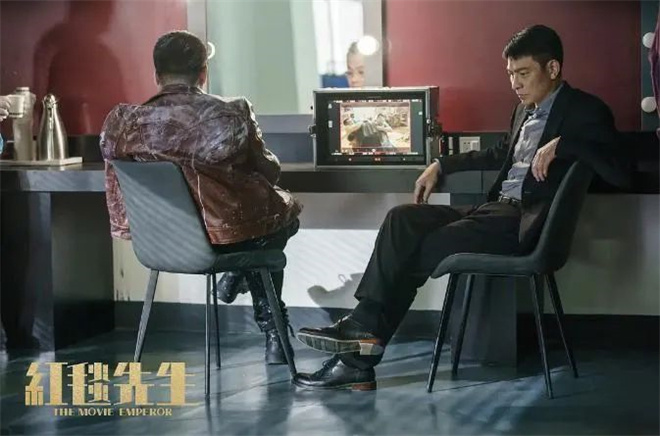
As one of Ning Hao’s strengths, the excellent soundtrack and sound design distinguish "Mr. Red Carpet" from traditional commercial comedies, with several passages that enhance artistry through music forming the film’s highlight moments. The famous "Ballero" appears three times in the film, achieving the function of intermission while shaping the film’s unique humorous grammar. Its sound often heralds Liu Weichi’s life going further out of control.
In a scene that is quite memorable, when Liu Weichi drove the car with the smashed window into the tunnel, he was surrounded by several trucks carrying transplanted trees. The branches and leaves of the trees became the accompaniment of music with the bumping of the truck, as if mocking Liu Weichi’s hasty escape.
And at the climax of the film – the crew’s pet pig escapes the room, messes up the public relations team’s office, and finally falls from the building in shock – the dance music rings again and disappears. At this time, Liu Weichi arrives at the underground parking lot and finds that each car is equipped with a driving recorder. The monitoring red light flashes, and the burglar alarm sounds inexplicably, which gives this paragraph a "Black Mirror" urban thriller.

In one of the movie’s posters, Liu Weichi awkwardly drives a standing electric balance bike, struggling to maintain his balance on the red carpet.
The original intention is always easily misinterpreted, and the consequences are often out of control. It is precisely because of this that even for Ning Hao and Andy Lau, who have already achieved great success in the industry, creating truly "contemporary" works requires continuous learning, just like driving a balance car.